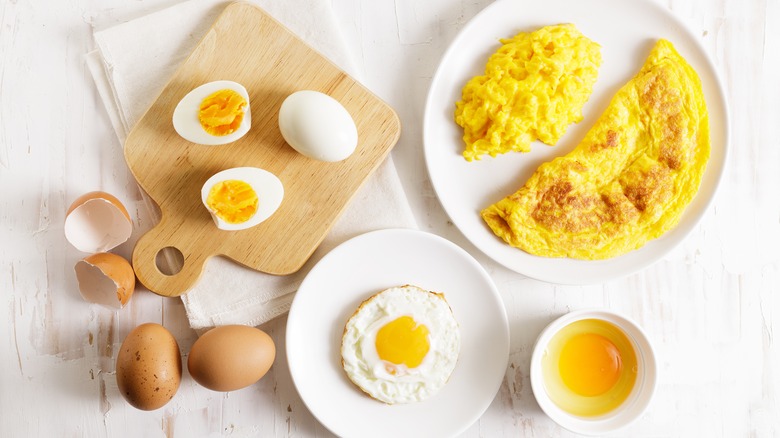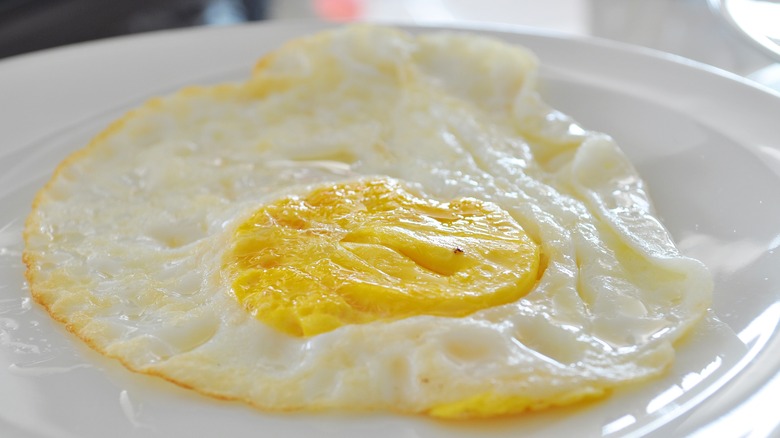How Well Cooked Is An Over-Hard Egg?
How do you take your eggs? Most Americans prefer them scrambled, over easy, or sunny-side up, according to YouGovAmerica, but the options don't end there. Other common ways to eat eggs include in a frittata, omelet, or huevos rancheros, which were the most popular ways to eat the breakfast food in 2017 in Oregon, Florida, and California, respectively (via Eat This, Not That!).
But what do all those options actually mean? The technicalities involved in separating different egg cooking methods can get a little confusing, especially when the differentiator is sometimes mere minutes of extra cooking time. For example, a soft-boiled egg takes about four to six minutes to make, while a hard-boiled egg takes eight to 12. But even within these classifications, each additional minute of boiling will yield a slightly firmer yolk, The Stay at Home Chef shares.
When it comes to fried eggs, the firmness of the yolk and whether or not the egg is flipped make the difference between a sunny-side up, over-easy, and over-medium egg, according to the Egg Farmers of Canada. And, for a really well-done egg, you can try cooking it over-hard — but what does that entail?
An over-hard egg is fully cooked
Before we get into over-hard eggs, let's start off with over-easy. According to the Egg Farmers of Canada, an over-easy egg means that the yolk is still runny and the egg has been flipped during the cooking process. It's essentially the same thing as a sunny-side up egg, except that once it's flipped, it cooks for a few more seconds so the whites are set, Cooking Light shares.
If you're a little squeamish about runny yolks, you may want to try cooking them over-hard. This means the eggs are cooked following the same over-easy technique, then left to sit in the pan after being flipped until the yolk is as firm as in a hard-boiled egg, according to Cooking Light. But just because you're fully cooking the egg doesn't mean it will take long to get there. According to Bites With Bri, you'll want to fry the egg for about two minutes until the whites are set, then flip it and cook for another two minutes.
One of the benefits of cooking eggs over-hard, besides the fact that you won't have to worry about consuming runny yolks, is that your eggs won't spill all over toast or a breakfast sandwich. And since the egg will be fully cooked, you're essentially getting a hard-boiled egg, just with a little added butter and a little less time waiting for a watched pot to boil.

